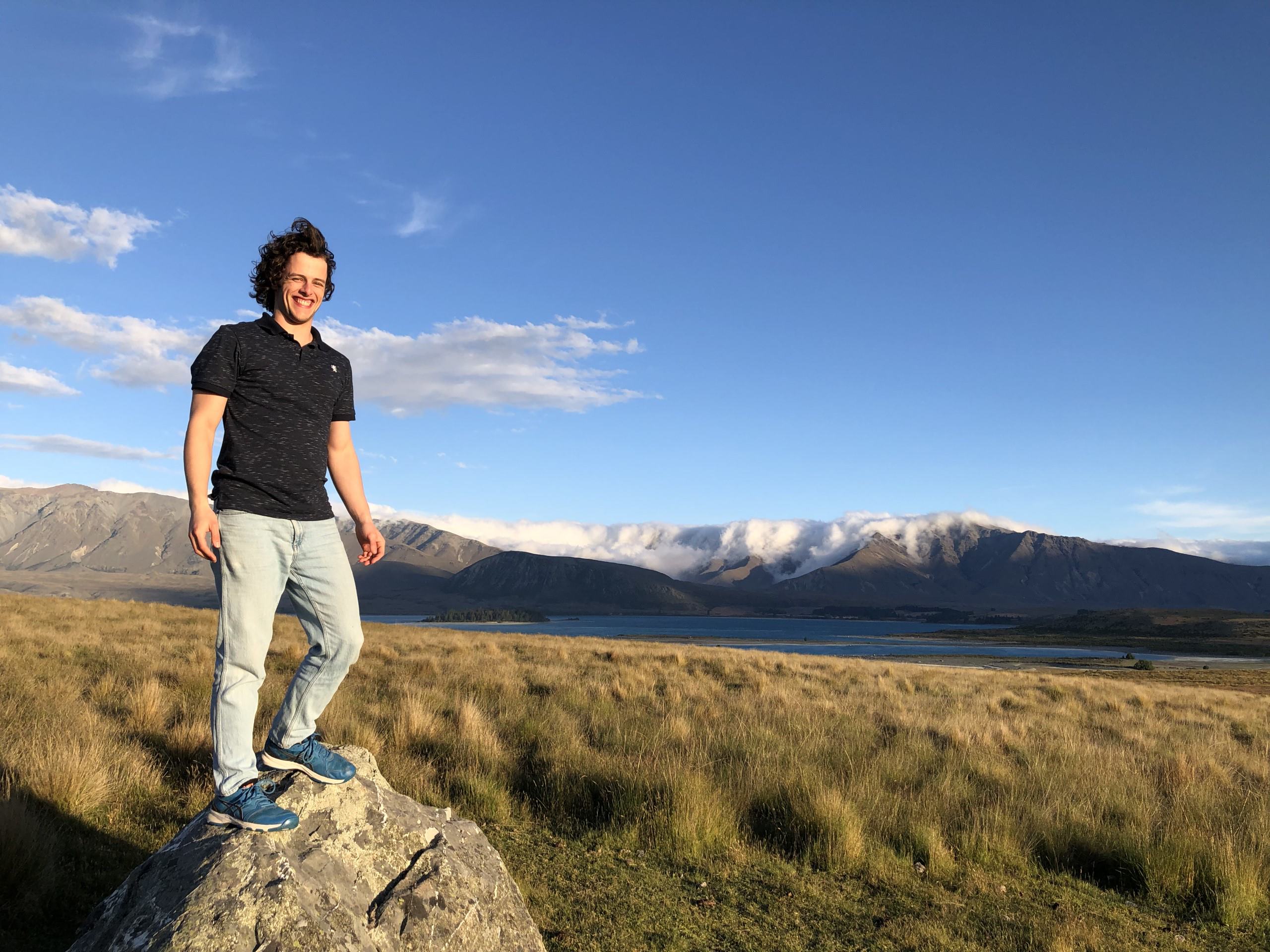
How I found the answer to ‘What caused my son’s hearing loss?’
September 6, 2017
Deaf Short Film Festival highlights deaf talent and bridges the gap between deaf and hearing communities
September 8, 2017New to hearing loss? 3 ways to be an advocate for your hearing loss journey

For people new to hearing loss, it can be common that you feel lost after leaving the audiologist or hearing aid dispenser’s office.
At first, your new hearing aids may fit well and work properly, but after a while you may have doubts – not just about the technology but also about living with hearing loss.
As someone who is new to hearing loss, and unfamiliar to the “deaf community,” who can you turn to?
Here are three ways you can find the real answers you’re looking for and advocate for your newly-diagnosed life with hearing loss:
1) Seek information from your Audiologist, but advocate for yourself
My hearing loss was first explained to me by a very nice audiologist. She went out of her way to explain that living with hearing aids would be a life-changing experience. Also, she said, I would need to come to terms with living with hearing loss as part of my future.
But what did that mean?
My audiologist offered general support for repairs, cleaning and re-fitting of my new hearing aids, but what was missing was information about living with hearing loss. I began to experience feelings of isolation, confusion and low self-esteem. I left the appointment shaken and confused.
Do your own research
While I waited for my next appointment for my hearing aid fittings, I began researching about living with hearing loss. I wanted as much information as I could to have an idea of what to expect.
I researched benefits of living with hearing loss, such as being eligible for a UK Disabled Persons Railcard.
My audiologist admitted he wasn’t aware of this accessibility benefit. After I informed him he said he would be sure to mention it to people in the future.
Document your hearing aid use
After I first received my hearing aids, I spent the first few weeks growing accustomed to them. I noted the differences they made, both good and bad. I quickly learned that hearing aids did not work magic and restore hearing. They were instead a useful tool to improve my hearing.
“Some things were marvelous, while others were annoying and the odd thing unchanged.”
I discovered that sounds were very different. I had to relearn how I listened and how my brain interpreted sound. Some things were marvelous, while others were annoying and the odd thing unchanged.
Noting these situations has made it easier for me to discuss the challenging situations with my audiologist.
2) Seek information from online communities
After consciously living with hearing loss for several weeks, I came to the realization that I still had many questions about my new life with hearing loss. I went back online and searched again. I found websites like Hearing Like Me and Action On Hearing Loss and lurked on various forums.
Gradually, I understood my place in the deaf community. Even there I found that in certain quarters, having hearing loss did not mean I was deaf. I learned that I was classed as deaf with a lowercase ‘d.’ Not Deaf, with a capital ‘D.’ As this was for those who are profoundly Deaf and often rely on communication methods such as sign language instead of hearing technology.
The small seaside town I live in has no deaf community to speak of and no network. I can only imagine how isolating this must be for so many with hearing loss, especially the elderly who are not always internet competent.
I have the internet and as such feel very lucky. I’m also part of a large community since becoming a part of HearingLikeMe. Even so, I am still not as informed as I could or should be.
I believe that everyone who experiences hearing loss has a right to be told not simply about the physical implications, but also the emotional, mental and societal elements, which together form the whole picture of their diagnosis.
“I believe that everyone who experiences hearing loss has a right to be told not simply about the physical implications, but also the emotional, mental and societal elements…”
These online communities and forums give those of us with hearing loss a way to ask questions and seek answers. I encourage you to begin engaging with them to discover tips and tricks with your hearing aids, effective communication methods, and stories of hope and encouragement that we all go through similar struggles with our hearing loss.
Who knows, you may even make a new friend.
3) Seek change in your own community
According to The World Health Organisation (WHO) factsheet on hearing loss issued February 2017, 360 million people worldwide have disabling hearing loss. The implications here are staggering. With such a high global figure, shouldn’t this then be something covered in a sensible educational way in the mainstream media?
Instead we have reports of Deaf community advocates being insulted by so-called media professionals. For example, Hollywood actress Marlee Matlin was insulted in the American mainstream media last year by being referred to as retarded. When is this kind of negative treatment going to stop within media circles?
This worries me, because I am not only capable, but as a journalist, trained to research and uncover information. The majority of people are not. The danger is misinformation, which is so prevalent on the internet. Sites like Wikipedia are not always necessarily factual in all their content, as these are can be edited by anyone and so often do not carry verifiable data.
An official report from The Commission on Hearing Loss Evidence Session: 5th June 2014, chaired by Baroness Sally Greengross covered a number of serious issues related to hearing loss, early intervention and subsequent after care.
I will not cover every single aspect of the report, but will instead mention those areas of it which I feel show that no, or little progress has been made during that time. Mention is made of a problem with GPs failing to refer 45% of people reporting hearing loss.
The report talks of the need for those with hearing loss to learn to lip read. I have never been told this.
Also covered in June 2014 was the importance of an awareness of the network of the deaf community, being provided for those newly diagnosed. In fact, aftercare was deemed critical. However, in 2017, this is still noticeably lacking.
The whole report makes for very interesting reading, as it was obviously intended to be followed by actions in the wider audiology and hearing prevention and treatment community. So what happened?
Initiatives such as those mentioned above take money and time to implement and we are all too aware of the lack of both of these in the now struggling NHS. That said, aftercare does not have to be expensive or even time-consuming.
Consider looking into this research and being an advocate for your hearing loss. Find ways in your community to talk about hearing loss. If you need extra assistance, find or start local support groups or learn different communication methods, such as sign language and lip reading.
Hearing loss sufferers are part of the hearing community until they are diagnosed. However, as things stand at this time, once diagnosed and fitted with hearing aids, they are expected to continue as normal functioning members of the hearing community, which is patently absurd.
For most of the time I function well among hearing people, but not all the time and yet, I have nothing to fall back on in a general sense. There are no local support groups near me. No BSL or Lip reading courses available. I have begun a very basic online BSL course and will look into something similar for lip reading.
I would challenge you to help encourage the subject of hearing society’s re-education, where the deaf community is concerned.
“I would challenge you to help encourage the subject of hearing society’s re-education, where the deaf community is concerned.”
Focus attention on educating the hearing community on these facts, and pay special attention to professionals working within both hearing loss, as well as the mainstream medical community.
The outcomes could change the way we think about hearing loss, and help us all live a more connected life.
What other ways have you used to advocate for your hearing loss journey? Let us know in the comments below.



